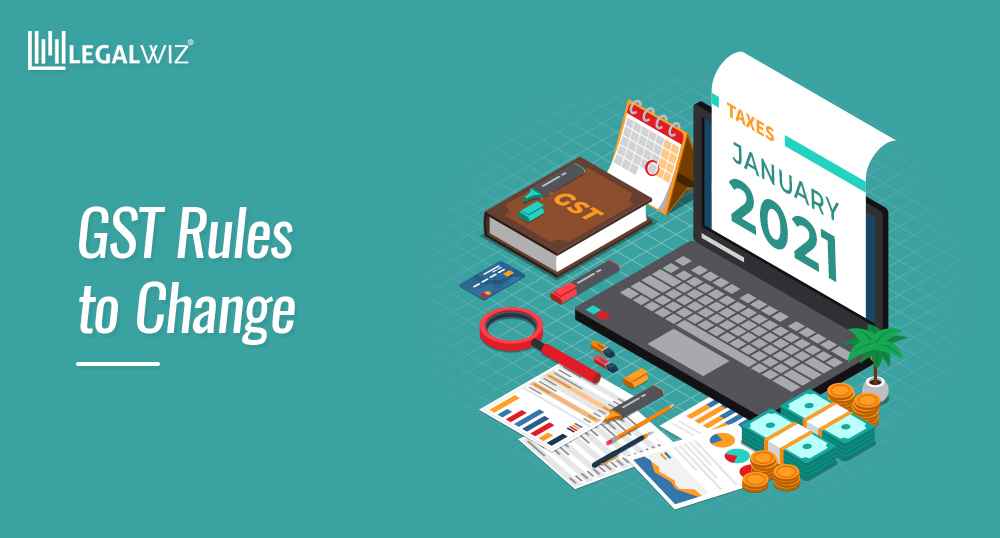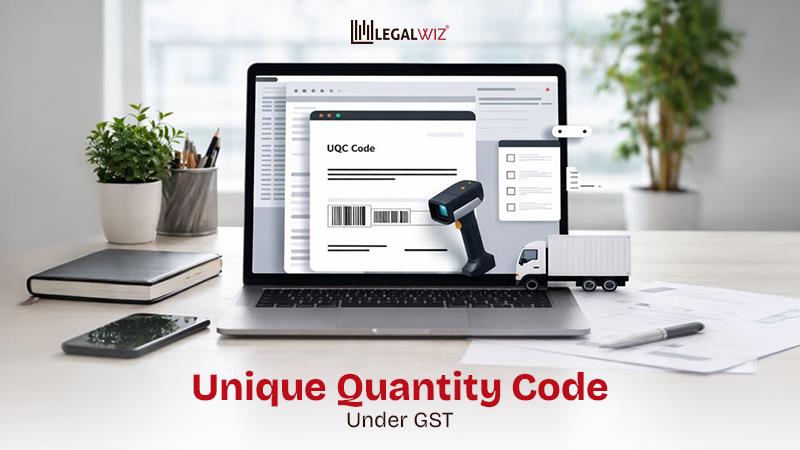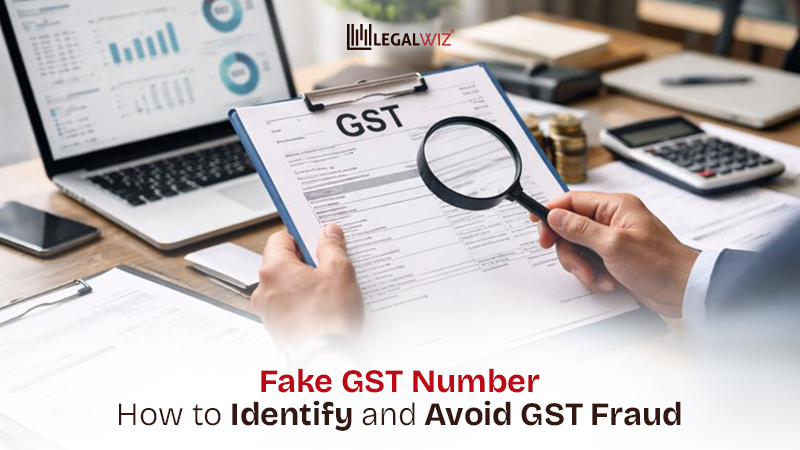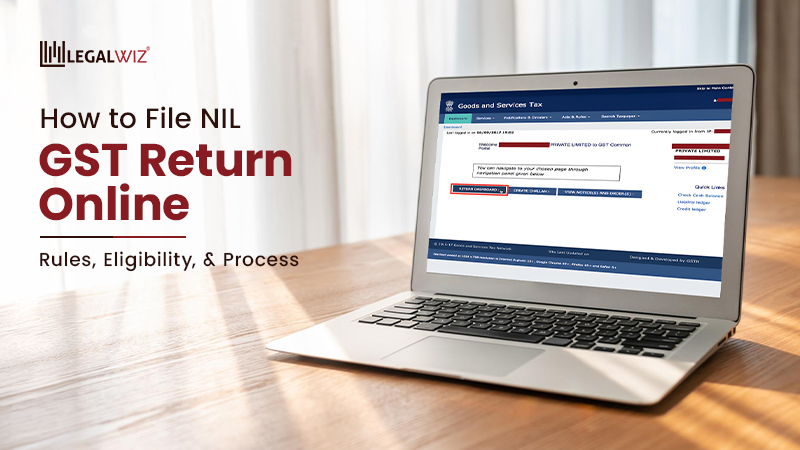Changes in GST Rules on 22 Dec. 2020-Impacts and Actions
The government has recently implemented several changes which will go into effect on 1st January 2021. An attempt is made to discuss these changes and how they will impact the users and taxpayers, and what steps are necessary to comply with the changes. The main changes include.
1. Increase in the time period to get GST registration change
The government has increased the time allowed for the GST department to approve an application for GST registration from 3 days to 7 days. In total, there is an increment of 4-5 days for the system-based registration.
Also, if the applicant has not done the Aadhaar authentication or where the GST department deems it fit to carry out physical verification of the business premises, then the time limit shall be 30 days to grant registration.
Let’s understand the effect of this change
The government has planned a strict verification of the application and documents submission procedure. It may lead to more physical verification of premises. The number of queries also might increase in this process.
What should be ideal action:
The documents included with the application must be reviewed carefully to ensure that they are complete and in line with the department’s requirements. Due to the procedural change, there are more chances of Physical verification by the department on the applicant’s premises. The applicant must file an application for GSTIN well in advance because of the increased time frame in processing the request by government.
2. Cancellation of Registration
The GST Officer can cancel registration where the Input Tax credit is utilized in excess of what is allowed or permissible under the Act and the rules made by the Government under the Act.
Let’s understand the effect of this change
Cases of benefitting out of excessive ITC are going to be handled with the severity equal to cancellation of GST registration. It is anticipated that the department will differentiate between the genuine clerical mistakes from those who are deliberately utilizing excessive ITC.
What should be ideal action:
Actions being taken by the government include the setting of accounting and recording standards, so there is no room for mistakes or errors. One must be mindful of the ever-changing ITC laws and rules.
3. Cancellation of Registration for lower Liability in GSTR3B Change:
The cases where applicant has filed and shown less liability on account of Outward supply in GSTR-3B than what is filled in GSTR-1, the department may take action to cancel the registration. One has to understand that the Taxable value and Tax Value both should be in sync. The value should be same in GSTR-3B & GSTR-1. Furthermore, the officer can cancel the registration if he has reasons to believe that the registration of the person is liable to be cancelled.
Let’s understand the effect of this change
Another detrimental regulation that adversely affects taxpayers. There may be many reasons, owing to omissions or errors in previous months, that the outward supply value is lower than what is declared in GSTR-1. Not giving a taxpayer the chance to explain the reasons is against natural justice. It is based on the unrealistic assumption that taxpayers cannot make mistakes.
What should be ideal action?
The provisions in this order shall come into force from 1st January 2021. The taxpayer should identify all omissions, errors and gaps that happened while filing returns of April to December 2020. It is advisable to correct the gaps while filing GST return of December month. The taxpayer will identify the process gaps and fix them, so errors are not made and detected before filing returns. It is also highly recommended to seek professional help and not take risks.
4. Suspension of Registration Change
No opportunity of being heard to taxpayers for suspension of registration if substantial anomalies are found between GSTR-3B and details of outward supplies furnished in GSTR-1 or inward supplies calculated based on the details of outward supplies furnished by applicant’s suppliers in their GSTR-1, the department may serve an SCN notice in Form GST REG 31 under Rule 21A(2A).
In cases where there are significant differences between the details of outward supply provided in GSTR 3B and GSTR1 or inward supplies (ITC) mentioned in GSTR 3B and GSTR 2B, the tax department shall serve a notice in FORM GST REG 31 to call for an explanation as to why the GSTIN should not be canceled. The taxpayer shall be required to submit his reply within 30 days of such notice being served to him.
Also, there is no refund u/s 54 of the CGST Act during the period of suspension of registration.
This rule permits the officer to revoke the suspension of registration anytime during the pendency of the proceedings for cancellation.
Let’s understand the effect of this change
The impact of the insertion of this rule is – a taxpayer will have to match and reconcile the numbers/amount in GSTR1, GSTR2B, and GSTR3B first, and then file the returns.
What should be ideal action:
The taxpayers have a duty to ensure adequate resources are available and the required attention is paid to these issues. The cost of these provisions is very high in terms of the impact on the taxpayer’s wallet. A taxpayer must use technology as much as he/she can and processes must improve in order to be competitive.
5. Reduction in availability of ITC Change
The ITC has been reduced to 105 percent of the invoices appearing in GSTR2B from 110% of it currently under Rule 36 (4).
Let’s understand the effect of this change:
Again, some loss in the tough time. This will deplete your financial resources. One has to arrange for a substantial amount of cash for this.
What should be ideal action:
The only solution is to make ITC more available is by motivating the suppliers to file the returns on time. Continuous follow up with supplier will increase the chances of claiming proper ITC by the taxpayer. Another action department will take following this change is that a taxpayer who does not file GSTR 3B for two consecutive months will not be allowed to file GSTR 1. For taxpayers falling under the quarterly return filing umbrella, failure to file GSTR 3B for the last quarter will not permit them to file GSTR 1 for the current quarter. This action will help in increasing the availability of ITC for the taxpayer.
6. Restriction to use 100% ITC for tax payment change
A new rule has been added that limits the use of 100% ITC for payment of tax in a month. ITC can be utilized at 99% maximum capacity of the total tax liability, the remaining 1% to be paid from cash ledger. Though, this provision is applicable when the taxable supplies are in excess of Rs. 50 lacs in a month. Furthermore, this rule will not be applicable if –
a. Where the taxpayer paid Income Tax exceeding Rs. 1 lac in two preceding financial years.
b. Where the taxpayer has received GST refund exceeding Rs. 1 lac or more.
c. Where the taxpayer has used cash ledger to discharge his output tax cumulatively 1% of the total liability up to that month.
d. Where a person is a Government Department, Public Sector Undertaking (PSU), local authority, or a statutory body.
Let’s understand the effect of this change
This change appears to be intended to combat fake invoicing and counterfeit items coupled with ITC. For normal taxpayers, filing tax returns will be more time consuming and complex. Recently, the government has proposed various measures to prevent fake invoicing and availing fake ITC, which is a positive development. As rules have changed, they have become very complex and difficult for those genuine taxpayers who haven’t made any default. In light of recent changes, the taxpayers should take appropriate measures to minimize the impacts.

Labdhi Kochar
Labdhi Kochar is a legal whiz who makes startup laws sound almost fun (yes, really!). With expertise in business structuring, fundraising, and IP rights, she helps entrepreneurs turn their ideas into well-planned, legally sound ventures. Whether she’s building rock-solid business structures or simplifying compliance jargon, Labdhi believes legal knowledge should be practical and accessible. When she’s not decoding legal complexities, you’ll probably find her indulging in her true passion-shopping like it’s a full-time job!







